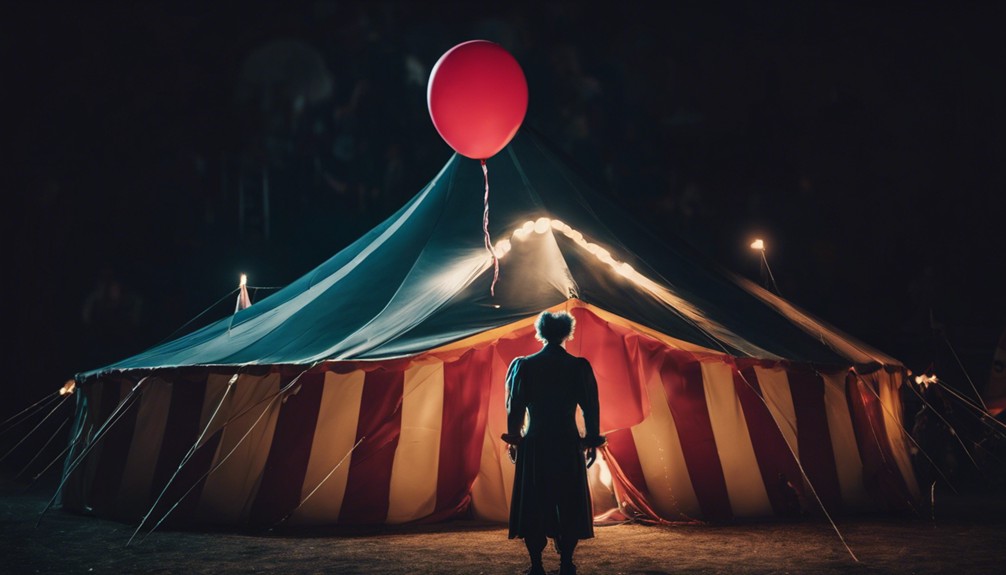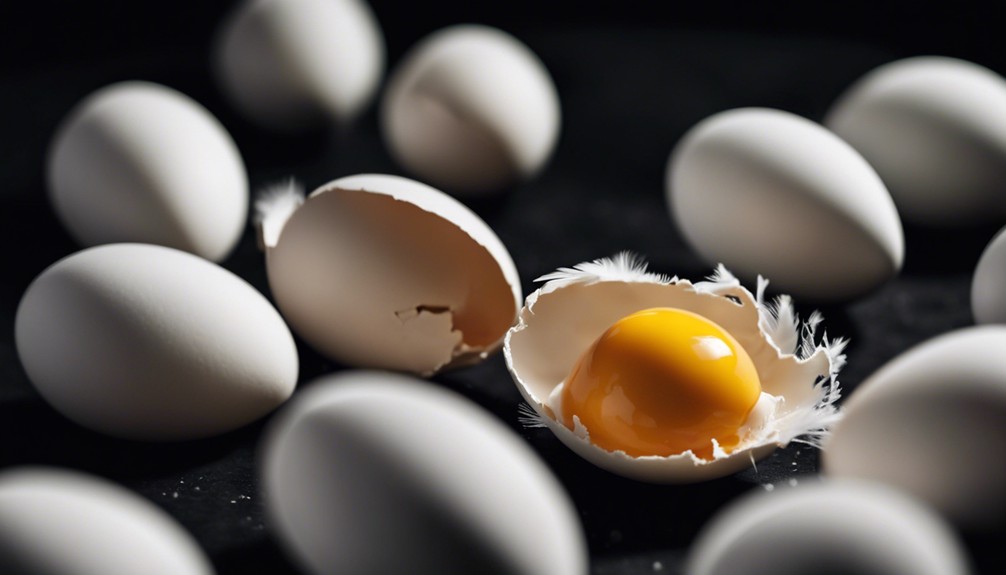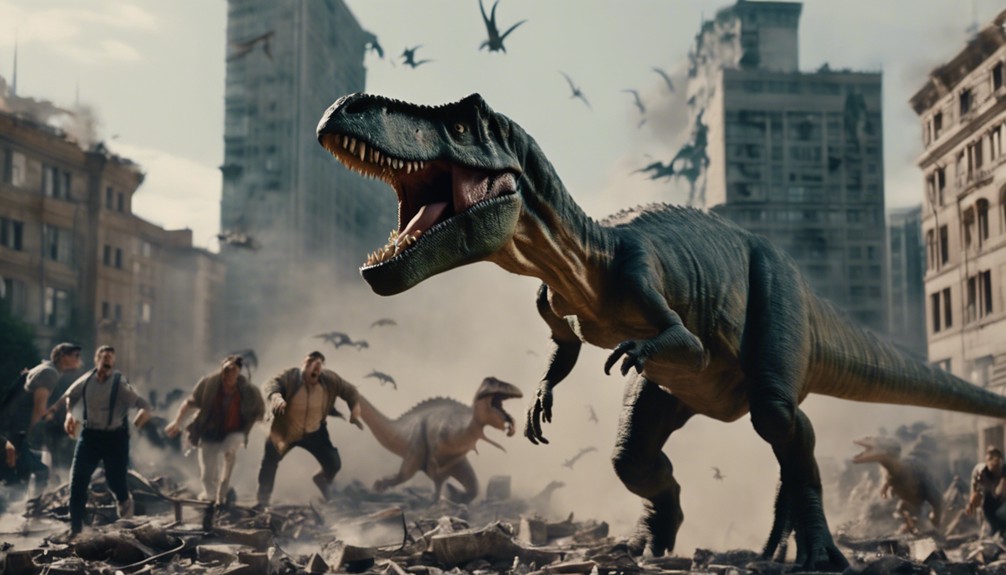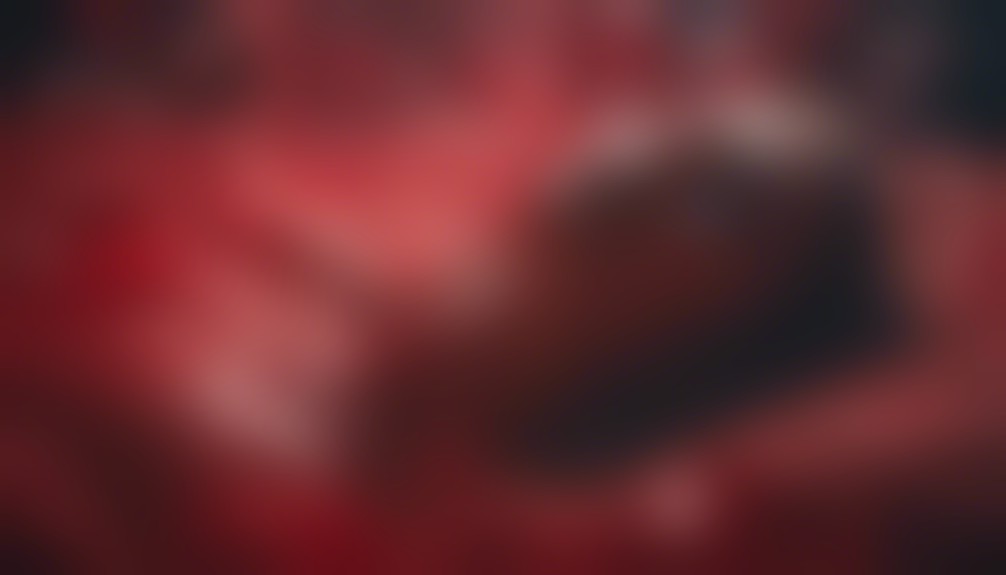I remember waking up in a cold sweat, my heart pounding, after a particularly vivid dream about clowns. The experience left me unsettled, prompting me to delve into the meaning behind these unsettling nocturnal encounters.
What does it really mean to dream of clowns? Are they simply whimsical figures or do they hold a deeper symbolism?
Join me as we explore the hidden messages and emotional impact of clown dreams, uncovering the truth behind these enigmatic nighttime visions.
The Symbolism of Clowns in Dreams
When interpreting dreams, the symbolism of clowns holds a fascinating and multifaceted significance. From a psychological analysis perspective, clowns in dreams often represent the dichotomy of emotions within an individual. On one hand, clowns are known for their comedic and entertaining nature, reflecting a desire for joy, humor, and lightheartedness in one's life. On the other hand, clowns can also be perceived as eerie or unsettling, embodying fear, anxiety, or even a hidden darkness. The presence of clowns in dreams may indicate the presence of conflicting emotions or a need to explore and reconcile different aspects of one's personality.
Furthermore, the cultural significance of clowns adds another layer of interpretation to their symbolism in dreams. Clowns have long been a part of various cultural traditions, representing different archetypes and societal roles. In some cultures, clowns serve as tricksters, challenging social norms and conventions. In others, they embody the idea of the 'fool,' providing social commentary and satire. Depending on an individual's cultural background and personal experiences, the symbolism of clowns in dreams may differ, reflecting unique cultural associations and interpretations.
Exploring the Emotional Impact of Clown Dreams
The emotional impact of clown dreams can be explored by delving into the complex layers of symbolism and personal associations that clowns hold within the realm of dreams. When we dream of clowns, it's important to understand the psychological implications that these dreams can have on our emotions and well-being. Here are five key points to consider when examining the emotional impact of clown dreams:
- Fear and anxiety: Clown dreams often evoke feelings of fear and anxiety. The exaggerated features, painted faces, and unpredictable behavior of clowns can trigger unease and discomfort in our subconscious minds.
- Childhood associations: Clowns are often associated with childhood memories, such as birthday parties or circus performances. Dreaming of clowns can bring forth nostalgic emotions, reminding us of the innocence and joy of our youth.
- Hidden emotions: Clown dreams may represent hidden emotions and repressed desires. The clown's ability to hide behind a mask and entertain others can symbolize our own attempts to conceal our true feelings or desires from ourselves and others.
- Playfulness and humor: On the other hand, clown dreams can also symbolize a desire for playfulness and humor in our lives. They may serve as a reminder to not take ourselves too seriously and to embrace the lighter side of life.
- Power dynamics: Clowns often hold a position of power in their performances, commanding attention and eliciting reactions from their audience. Dreaming of clowns may reflect our own struggles with power dynamics in our waking lives, highlighting feelings of powerlessness or dominance.
Understanding the emotional impact of clown dreams requires a deep exploration of our own personal associations and experiences. By unraveling the symbolism within these dreams, we can gain insights into our innermost thoughts, fears, and desires.
Common Interpretations of Dreaming of Clowns
A common interpretation of dreaming of clowns is that it reflects our subconscious exploration of the dual nature of human emotions. Clowns are often associated with laughter and joy, but they also have an unsettling and mysterious side. This duality mirrors the complexity of our own emotions, as we all experience a wide range of feelings that can be both positive and negative.
From a psychological analysis perspective, dreaming of clowns can be seen as a manifestation of our inner conflicts and unresolved issues. The clown may represent the parts of ourselves that we try to hide or suppress, the aspects of our personality that we feel uncomfortable with or ashamed of. By appearing in our dreams, clowns force us to confront these hidden emotions, allowing us to gain a deeper understanding of ourselves.
Furthermore, the cultural significance of clowns adds another layer of interpretation to these dreams. Clowns have been a part of human culture for centuries, and their archetypal presence in our collective consciousness influences the way we perceive them in our dreams. They can symbolize different things depending on cultural beliefs and personal experiences. For some, clowns may represent tricksters or jokers, while for others they may evoke feelings of fear or unease.
Uncovering Hidden Messages in Clown Dreams
Exploring the deeper meanings behind dreams of clowns can provide valuable insights into our subconscious thoughts and emotions. Dream analysis allows us to uncover hidden messages that our minds are trying to convey. When it comes to clown dreams, these hidden messages often revolve around our subconscious fears. Here are some common interpretations that can help us understand the underlying meaning of these dreams:
- Symbol of vulnerability: Clowns, with their exaggerated features and painted smiles, often represent vulnerability. Dreaming of clowns may indicate feelings of vulnerability or fear of being exposed in your waking life.
- Masking true emotions: Clowns are known for their ability to hide their true emotions behind their makeup and costumes. Dreaming of clowns may suggest that you're concealing your true feelings or putting on a facade in certain situations.
- Fear of deception: Clowns are associated with trickery and deception. Dreaming of clowns may reflect a fear of being deceived or manipulated by others.
- Fear of the unknown: Clowns are often unpredictable and can evoke a sense of uncertainty. Dreaming of clowns may symbolize a fear of the unknown or anxiety about the future.
- Reconnecting with childhood: Clowns are commonly associated with childhood memories and nostalgia. Dreaming of clowns may signify a desire to reconnect with your inner child or revisit aspects of your past.
Coping Strategies for Dealing With Clown Dreams
To effectively cope with clown dreams, it's crucial to acknowledge and address the underlying fears and emotions they represent. Clown dreams often stem from deeply rooted subconscious fears, such as fear of the unknown, fear of loss of control, or fear of being judged or ridiculed. Understanding these fears is the first step towards finding healthy coping strategies.
One approach to coping with clown dreams is to confront the fears head-on. By analyzing the specific aspects of the dream that trigger anxiety, we can gain a better understanding of what they represent in our waking lives. For example, if the clown in the dream is constantly laughing at us, it may symbolize our fear of being ridiculed or not taken seriously. Recognizing and addressing these fears can help us develop strategies to overcome them.
Seeking professional help is another valuable coping strategy for dealing with clown dreams. A therapist or dream analyst can provide a safe space to explore the deeper meaning behind the dreams and offer guidance on how to manage the associated emotions. They can help us uncover any unresolved traumas or anxieties that may be contributing to the recurring clown dreams.
Conclusion
In conclusion, dreaming of clowns can hold various symbolic meanings and emotional impacts. These dreams often carry hidden messages that can provide insights into our subconscious thoughts and emotions.
While clown dreams can be unsettling for some, coping strategies can be employed to navigate the emotions they may evoke. By exploring and interpreting the symbolism of clown dreams, we can gain a deeper understanding of ourselves and our inner world.



